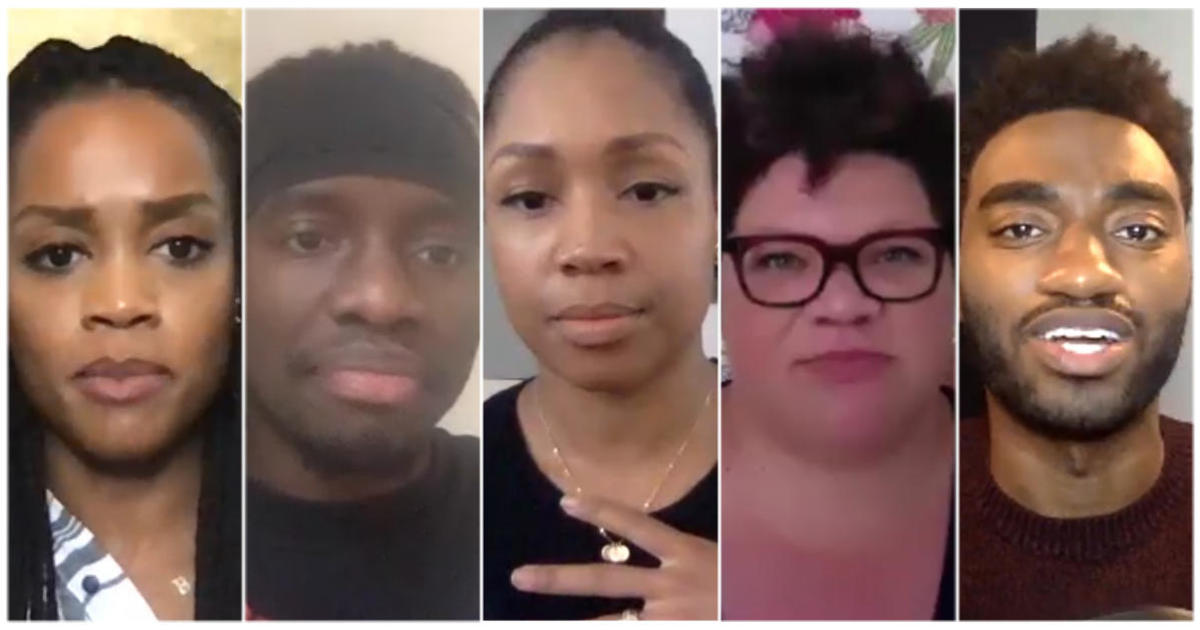
Black people across the country have taken to the streets and to their social media feeds to plead through protest that "black lives matter" and "enough is enough." But amidst all the noise and all the hashtags, many say there is nothing quite as deafening as "white silence." ?
Because for all the people who have flooded social media with George Floyd's name, Ahmaud Arbery's image and countless heartbreaking personal anecdotes of racism in action, there are just as many – and possibly even more – who have borne witness to the pain in black communities and chosen to say nothing.
Social media silence is nuanced?
And, as fitness influencer Trammell Logan tells CBS News, it can even be hurtful when white people post messages about #blacklivesmatter side-by-side with more frivolous content.
Catherine Moran Ayeni, an attorney in Texas, told CBS News that for her, worse than total silence is when people respond to a "black lives matter" post with the comment "all lives matter.".
"I'm not saying that you have to speak out and have this, you know, this whole spiel about black lives matter," she told CBS News.
"And so, when I see people choosing, because they have the privilege to choose, to ignore our pain and our fear and the fact that it feels like half the time we are screaming into a void, and that people are not listening because it makes them uncomfortable," she added.
The phenomenon of white silence has existed for centuries – long before social media – but the rise of Facebook, Twitter and Instagram has only served to make its presence more palpable.
And the people of color who are around a silent white person, they hear the silence.
Or you know, despite the fact that black and brown people have been acting up and protesting on our own behalf for centuries, I still don't quite get it enough to say something.".
Many in both the white and black communities agree that what drives the silence is fear.
"What drives the silence is the term that Robin DiAngelo coined, which is 'white fragility,'" said Michelle Saahene, who runs an organization called "From Privilege to Progress," which is focused on desegregating the conversation around race. ?
That's being scared of you maybe saying the wrong thing and hurting the black and brown community.
I know personally that I've had friends that didn't want to post on social media because they're scared of what some racist people will say.
Ayeni said fear is natural, especially for white people who are surrounded by friends and family members who might not necessarily agree.
"Acknowledge that you have questions and that you're seeing people in pain.
What's more, Saahene points out that most Americans' social media feeds are not integrated, which means that the stories the black community is posting will not necessarily reach white audiences until white people start posting about them too.
"The reason the Starbucks video went viral was because a white woman had shared it, and her social media was very white.
So, all these white people were seeing this video of racial discrimination that they normally wouldn't otherwise see...
So many people that live segregated lives, but still go to Starbucks, started saying, 'I can't believe this is actually going on
Now, more than ever, black and brown communities are urging white social media users to take action and do it publicly
